第12章 STORY OF THE DESTROYING ANGEL(5)
'Dismiss the thought,' replied my father. 'He now knows all that I can teach, and will do naught to save me. His power, besides, is small, his own danger not improbably more imminent than mine; for he, too, lives apart; he leaves his wives neglected and unwatched; he is openly cited for an unbeliever; and unless he buys security at a more awful price - but no; I will not believe it: I have no love for him, but I will not believe it.'
'Believe what?' asked my mother; and then, with a change of note, 'But oh, what matters it?' she cried. 'Abimelech, there is but one way open: we must fly!'
'It is in vain,' returned my father. 'I should but involve you in my fate. To leave this land is hopeless: we are closed in it as men are closed in life; and there is no issue but the grave.'
'We can but die then,' replied my mother. 'Let us at least die together. Let not Asenath and myself survive you. Think to what a fate we should be doomed!'
My father was unable to resist her tender violence; and though I could see he nourished not one spark of hope, he consented to desert his whole estate, beyond some hundreds of dollars that he had by him at the moment, and to flee that night, which promised to be dark and cloudy. As soon as the servants were asleep, he was to load two mules with provisions; two others were to carry my mother and myself; and, striking through the mountains by an unfrequented trail, we were to make a fair stroke for liberty and life. As soon as they had thus decided, I showed myself at the window, and, owning that I had heard all, assured them that they could rely on my prudence and devotion. I had no fear, indeed, but to show myself unworthy of my birth; I held my life in my hand without alarm; and when my father, weeping upon my neck, had blessed Heaven for the courage of his child, it was with a sentiment of pride and some of the joy that warriors take in war, that I began to look forward to the perils of our flight.
Before midnight, under an obscure and starless heaven, we had left far behind us the plantations of the valley, and were mounting a certain canyon in the hills, narrow, encumbered with great rocks, and echoing with the roar of a tumultuous torrent. Cascade after cascade thundered and hung up its flag of whiteness in the night, or fanned our faces with the wet wind of its descent. The trail was breakneck, and led to famine-guarded deserts; it had been long since deserted for more practicable routes; and it was now a part of the world untrod from year to year by human footing. Judge of our dismay, when turning suddenly an angle of the cliffs, we found a bright bonfire blazing by itself under an impending rock; and on the face of the rock, drawn very rudely with charred wood, the great Open Eye which is the emblem of the Mormon faith. We looked upon each other in the firelight; my mother broke into a passion of tears; but not a word was said. The mules were turned about; and leaving that great eye to guard the lonely canyon, we retraced our steps in silence. Day had not yet broken ere we were once more at home, condemned beyond reprieve.
What answer my father sent I was not told; but two days later, a little before sundown, I saw a plain, honest-looking man ride slowly up the road in a great pother of dust. He was clad in homespun, with a broad straw hat; wore a patriarchal beard; and had an air of a simple rustic farmer, that was, in my eyes, very reassuring. He was, indeed, a very honest man and pious Mormon; with no liking for his errand, though neither he nor any one in Utah dared to disobey; and it was with every mark of diffidence that he had had himself announced as Mr. Aspinwall, and entered the room where our unhappy family was gathered. My mother and me, he awkwardly enough dismissed; and as soon as he was alone with my father laid before him a blank signature of President Young's, and offered him a choice of services: either to set out as a missionary to the tribes about the White Sea, or to join the next day, with a party of Destroying Angels, in the massacre of sixty German immigrants. The last, of course, my father could not entertain, and the first he regarded as a pretext: even if he could consent to leave his wife defenceless, and to collect fresh victims for the tyranny under which he was himself oppressed, he felt sure he would never be suffered to return. He refused both; and Aspinwall, he said, betrayed sincere emotion, part religious, at the spectacle of such disobedience, but part human, in pity for my father and his family. He besought him to reconsider his decision; and at length, finding he could not prevail, gave him till the moon rose to settle his affairs, and say farewell to wife and daughter. 'For,' said he, 'then, at the latest, you must ride with me.'